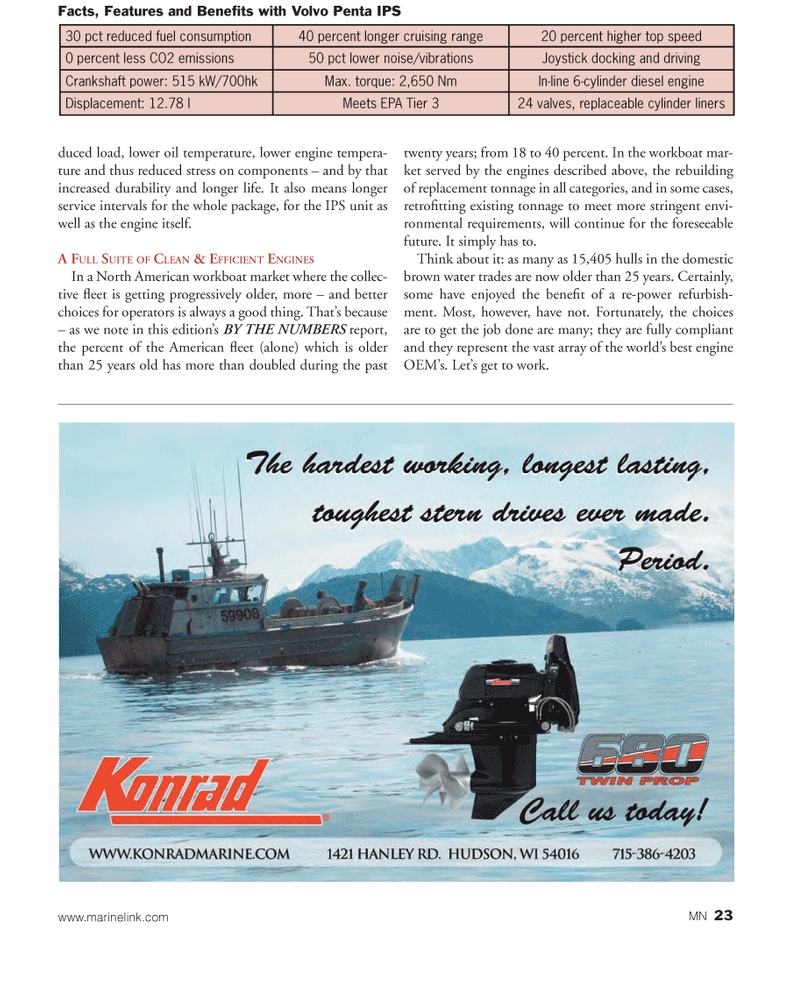
Page 23: of Marine News Magazine (July 2013)
Propulsion Technology
Read this page in Pdf, Flash or Html5 edition of July 2013 Marine News Magazine
duced load, lower oil temperature, lower engine tempera- ture and thus reduced stress on components ? and by that increased durability and longer life. It also means longer service intervals for the whole package, for the IPS unit as well as the engine itself. A FULL SUITE OF CLEAN & EFFICIENT ENGINESIn a North American workboat market where the collec- tive ? eet is getting progressively older, more ? and better choices for operators is always a good thing. Thats because ? as we note in this editions BY THE NUMBERS report, the percent of the American ? eet (alone) which is older than 25 years old has more than doubled during the past twenty years; from 18 to 40 percent. In the workboat mar- ket served by the engines described above, the rebuilding of replacement tonnage in all categories, and in some cases, retro? tting existing tonnage to meet more stringent envi- ronmental requirements, will continue for the foreseeable future. It simply has to. Think about it: as many as 15,405 hulls in the domestic brown water trades are now older than 25 years. Certainly, some have enjoyed the bene? t of a re-power refurbish- ment. Most, however, have not. Fortunately, the choices are to get the job done are many; they are fully compliant and they represent the vast array of the worlds best engine OEMs. Lets get to work. 30 pct reduced fuel consumption40 percent longer cruising range20 percent higher top speed 0 percent less CO2 emissions50 pct lower noise/vibrationsJoystick docking and driving Crankshaft power: 515 kW/700hkMax. torque: 2,650 NmIn-line 6-cylinder diesel engine Displacement: 12.78 lMeets EPA Tier 324 valves, replaceable cylinder liners Facts, Features and Bene? ts with Volvo Penta IPS www.marinelink.com MN 23MN July2013 Layout 18-31.indd 236/27/2013 1:00:41 PM

 22
22

 24
24
